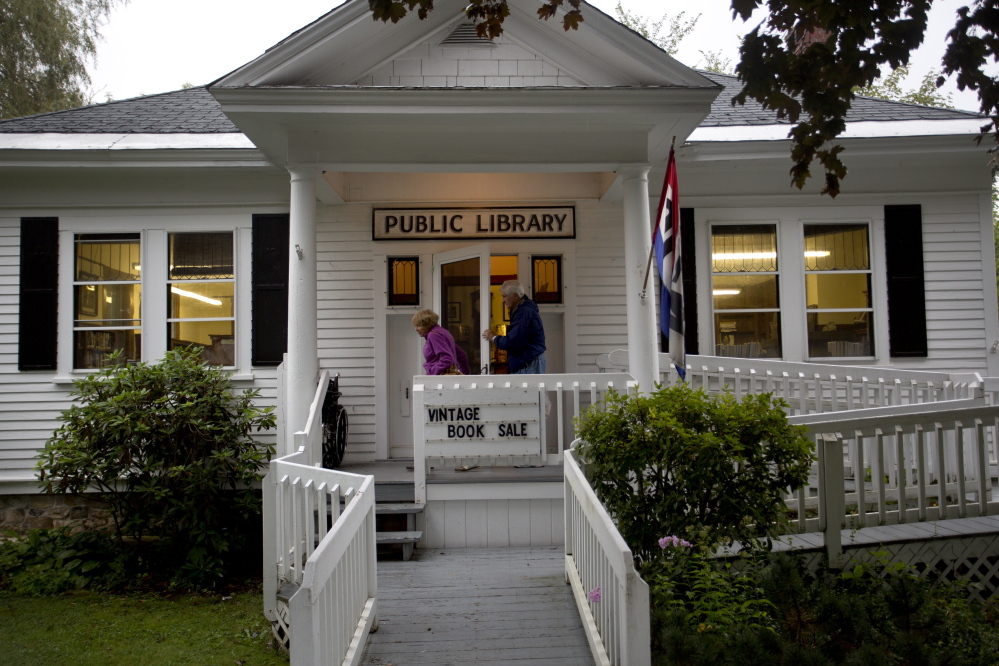America’s first lending library was started by Benjamin Franklin in 1731. And the statesman’s revolutionary advocacy of sharing information resources continues to inform the spirit of the approximately 260 public libraries in Maine.
But too many of Maine’s libraries are battling to stay alive, funding their operations with private donations, volunteer hours and the proceeds of fundraising book and pie sales. Public libraries account for a tiny share of government spending in proportion to the value of the services they offer, and the small amount of money that local and state officials save by reducing library funding doesn’t justify depriving residents of the critical resources and services that libraries provide.
Reports that libraries have succumbed to neglect in the Internet age are greatly exaggerated. More than half of all Americans have visited a library in the past year, noted a recent Pew Research Center study, and a third are “highly engaged” avid readers who “appreciate what libraries do for their communities, and value a range of library services from book lending to children’s programs.”
Those surveyed haven’t left books behind – most told Pew that book lending is a “very important” library service – but the study found that free computers and Internet access are equally as valued. That’s no surprise. Computers are increasingly necessary for kids to do homework, for parents to communicate with teachers and for people who are out of work to fill out job applications.
Public libraries are the only source of free Internet access in 77 percent of Maine communities, making local libraries more necessary than ever. But at the same time, the need to contain residents’ property tax burden by reining in municipal spending has been amplified by massive revenue-sharing cuts that have forced towns to scrimp where they can.
The librarian in the western Maine town of Mexico, for example, told the Maine Sunday Telegram that her budget battle gets tougher each year, though the most recent annual library appropriation totaled $68,000 – less than 3 percent of municipal spending. And in North Bridgton, whose residents pay just $1.70 in tax money per capita on libraries, the library will close Dec. 31 because it can’t afford to stay open. It joins libraries in three other Maine towns that have closed in recent years.
Library funding is no more generous at the state level than at the local level. Maine is one of a handful of states that provides no direct aid to libraries, and in recent years it has reduced funding for indirect library aid, in the form of statewide programs like interlibrary loan and electronic databases. (Incidentally, the Maine State Library budget represents less than 1 percent of General Fund spending.)
Maine’s public libraries are in an unworkable situation. If government officials don’t step up and increase support, more of these institutions will shut down – and take critical community services with them.
Copy the Story LinkSend questions/comments to the editors.



Success. Please wait for the page to reload. If the page does not reload within 5 seconds, please refresh the page.
Enter your email and password to access comments.
Hi, to comment on stories you must . This profile is in addition to your subscription and website login.
Already have a commenting profile? .
Invalid username/password.
Please check your email to confirm and complete your registration.
Only subscribers are eligible to post comments. Please subscribe or login first for digital access. Here’s why.
Use the form below to reset your password. When you've submitted your account email, we will send an email with a reset code.